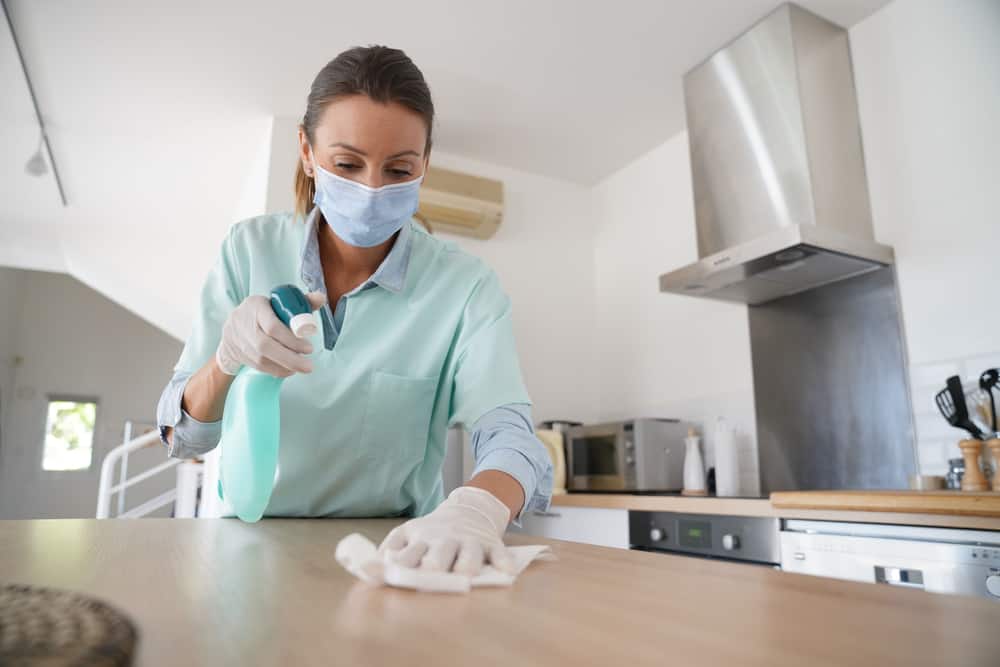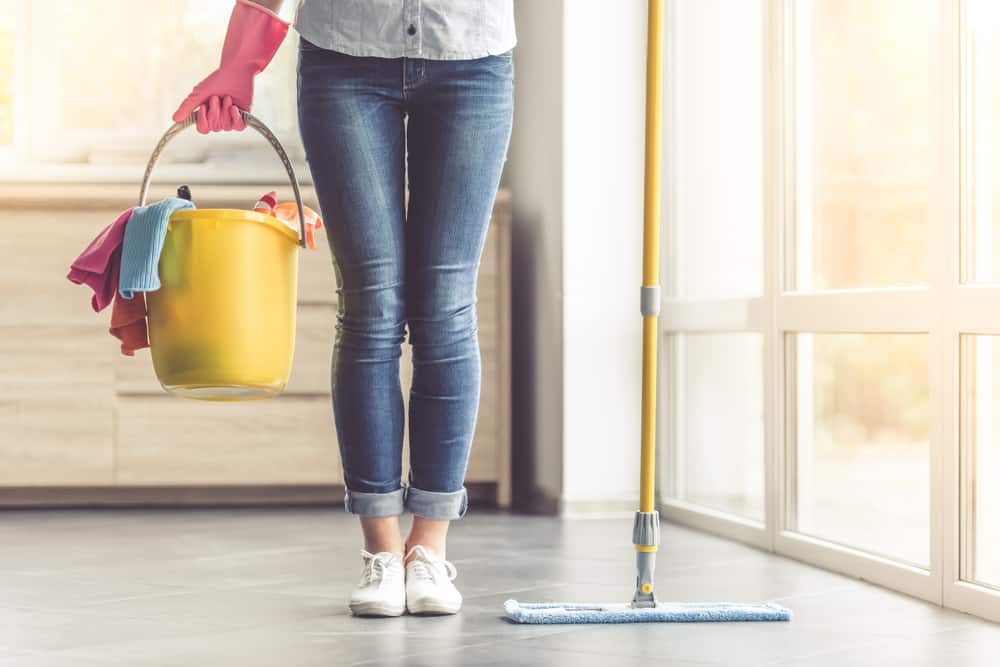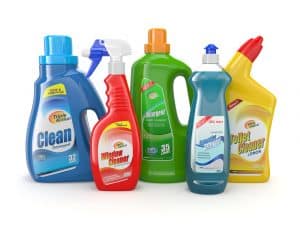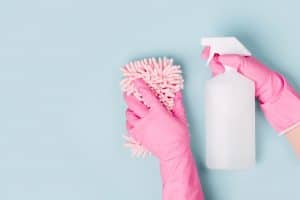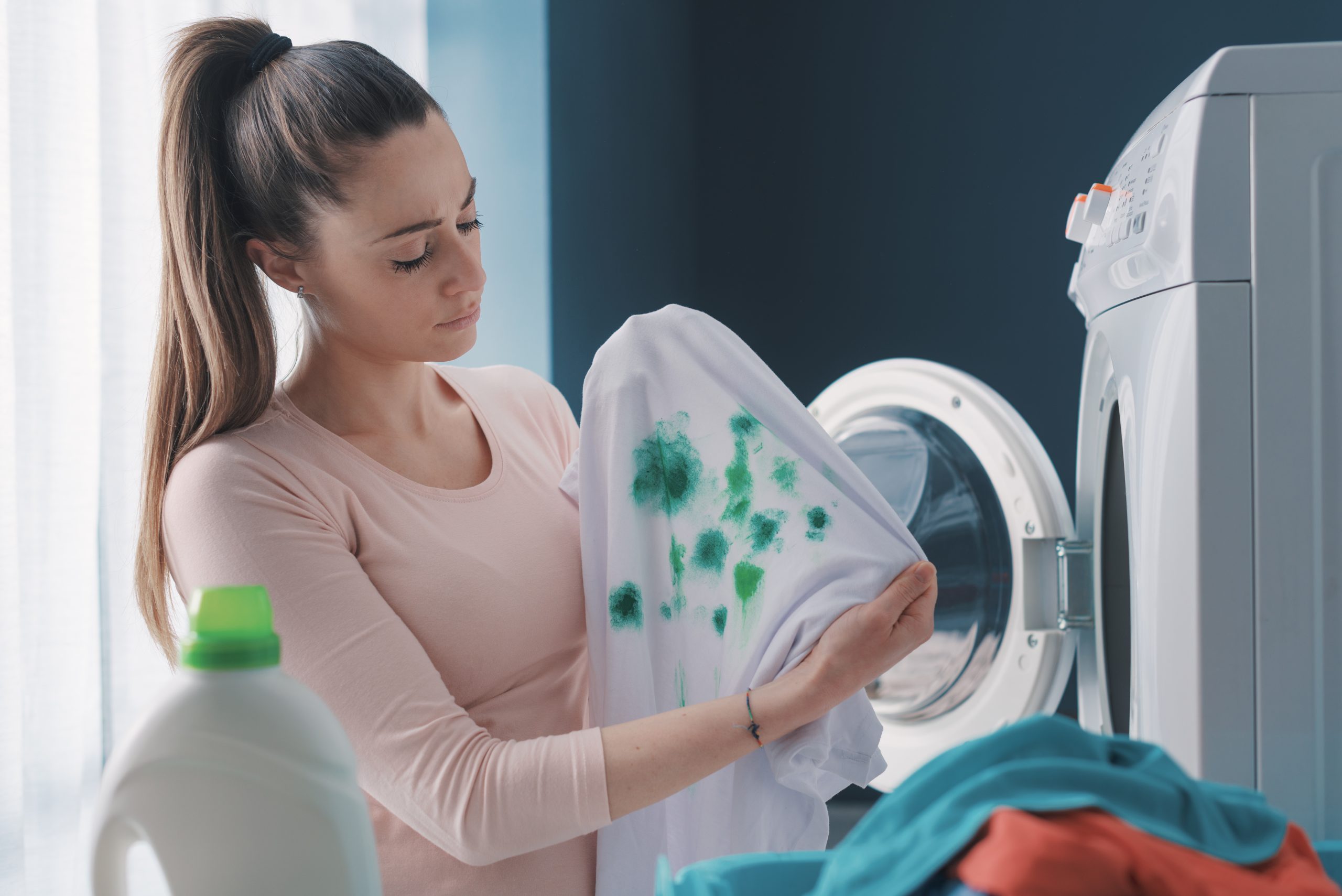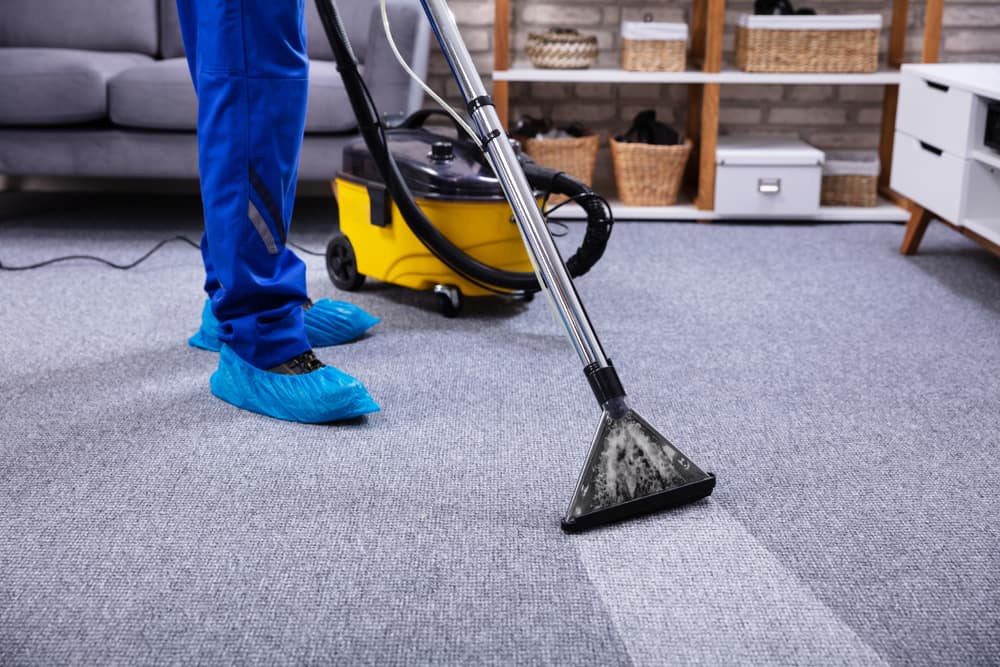Cleaning your home is a routine part of life. Most people don’t enjoy doing it, but it’s a chore necessary for the health, wellbeing, and hygiene of your home and family.
Many of the chemicals used in our cleaning products are not damaging to the overall health of our society. However, some of them are superfluous and may even contribute to the development of antimicrobial-resistant bacteria.
Page Contents:
Can You Get Sick From Inhaling Cleaning Products?
Most cleaning products are highly concentrated. Using bleach-containing products more than once a week has been shown to increase your risk of Chronic Obstructive Pulmonary Disease (COPD) by nearly a third because of the level of concentration.
Many symptoms experienced related to cleaning products affect the lungs and throat. The worst offenders of causing illness are disinfectants containing bleach and ammonia, due to Volatile Organic Compounds (VOCs), and quaternary ammonium compound disinfectants.
Does Bleach Cause Cancer?
Bleach is highly concentrated and should be diluted before use. Without diluting it, it is likely to cause chemical burns in the eyes and lungs.
That being said, there is no evidence that bleach, on its own, can cause cancer or reproductive damage. When you combine bleach with other cleaning chemicals, you can create other gasses and acids that may lead to injury.
Further, when people inadvertently mix certain chemicals, they can cause interactions that can create poisonous gasses and caustic acids. These will most often result in burns or respiratory damage.
For example…
When you mix bleach and ammonia-based chemicals, you create a variation of mustard gas. Similarly, hydrogen peroxide and vinegar become peracetic acid, which is disinfecting and corrosive.
Homemade Cleaners Vs. Store Bought Cleaners
A school of thought suggests that homemade cleaners are not as effective as store-bought. However, with a basic understanding of chemical interactions, and the disinfectant properties of natural products, one can create effective cleaning products with fewer harmful ingredients.
Many popular commercial cleaners can be imitated with less harmful ingredients, still achieving the same results. Below, you’ll find a couple of recipes for cleaning products made at home that can replace the more dangerous alternatives.
- Lemon essential oil added to water can replace most lemon-based disinfectants because this form of citrus is naturally antimicrobial. Using it can increase resistance to disease, fungus, and viral illness.
- Combining peppermint and orange oils can create a pest repellant to replace caustic chemical reactions. Additionally, both of these are also antimicrobial.
Can Cleaning Products Trigger Asthma?
Anyone who has worked in the janitorial industry can attest to the discomfort that cleaners can create in your lungs and eyes. The cleaners that are most likely to cause respiratory distress or trigger asthmatic reactions are chock full of strong scents and VOCs.
Harsh or overly concentrated cleaning solutions can also cause allergic reactions and decreased air quality. If you experience the following respiratory symptoms when you’re cleaning, consider pursuing different cleaning methods, wearing a respirator mask, or diluting your solutions more:
- Sore or burning throat
- Sensitivity to smell
- Difficulty breathing fully
- Watering or burning eyes
- Running nose
- Severe headache
- Dizziness
Cleaning with harsh chemicals or without properly diluting the solutions can create additional dangers to your air quality, and cause long-term damage to the soft tissue in your lungs and sinuses.
You can reduce the severity of respiratory issues by choosing cleaners that are gel or liquid. Choosing scent-free non-aerosolized cleaners will keep more of the cleaner on the surface and out of your lungs.
Make sure to open windows and run a fan to keep your space ventilated and provide fresh air. Changing clothes and showering after cleaning will help reduce irritation to the skin.
Chemicals To Avoid In Cleaning Products
It’s incredible how many carcinogens are found in our standard cleaning products. Avoid the following chemicals, and their sources to prevent exposure to known cancer-causing ingredients.
- Perchloroethylene (PERC) – Found in fabric softeners, dry cleaning products, and carpet shampoos
- Formaldehyde – Found in industrial cleaners, degreasers, and heavy-duty general cleaners
- Concentrated Chlorine – Found in scouring powders, toilet cleaners, mildew treatments, and stain removers
- Ammonia – Found in many multi-purpose cleaners, disinfectants, glass cleaners, and polishing solutions
- Sodium Hydroxide or Lye – Found is some homemade and old-fashioned soaps, drain cleaners, and oven cleaning sprays
Keeping a clean space is shown to eliminate many common illnesses, including influenza and COVID 19. It is essential to make informed choices and have the option to select alternatives that are as effective or better with a little guidance.
Can Household Dust Make You Sick?
For people who have dust-related allergies, having dust build-up in your home can lead to allergic reactions and illnesses. On its own, dust can lead to asthma attacks, bronchitis, and other respiratory infections.
Dust buildup in air vents will result in poor air quality, which can increase the severity of allergy symptoms. Dust also absorbs mold and chemical particles: prolonged exposure to these particles could cause long-term health complications.
To reduce the potential of dust-related infections, dust your home at least once every 2 weeks. In addition to dusting your furniture, focus on cleaning baseboards, doors, and blinds.
How Do You Test If Your House Is Making You Sick?
There are several ways you can test whether or not your house is making you feel sick:
- Check the humidity. The higher the humidity, the easier mold can spread. You can reduce your home’s humidity by turning on fans and vents, opening windows, or purchasing a dehumidifier.
- Look at dust buildup. This one is self-explanatory. If you have a lot of dust and cobwebs in your home, that’s going to irritate the body and cause a reaction. Routine dusting keeps the dust count down and your home’s health up.
- Watch out for water damage. Water damage can also lead to mold growth, which results in an increased chance of sickness. If you spot any water damage in your home, you’ll have to call a professional and have it repaired.

